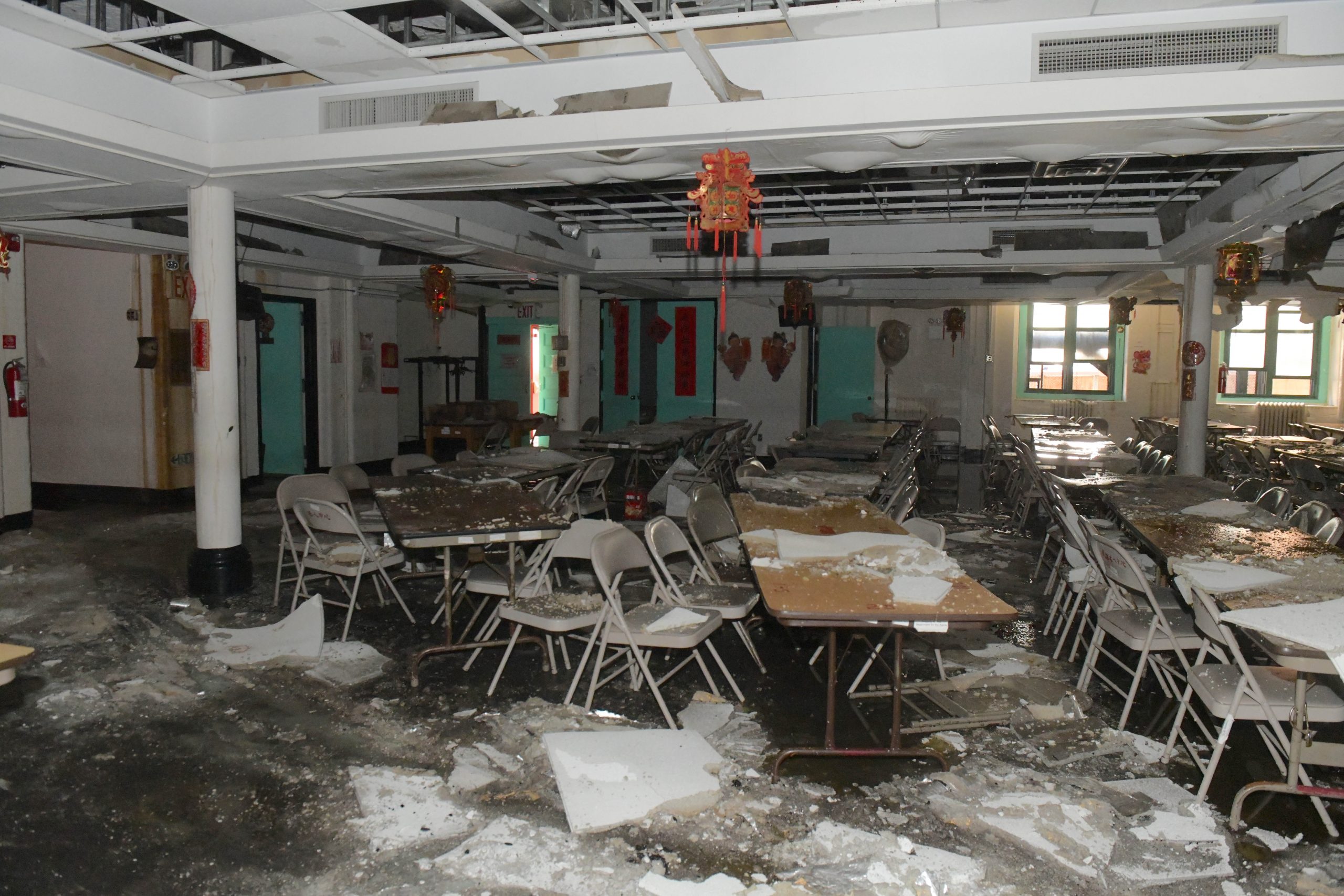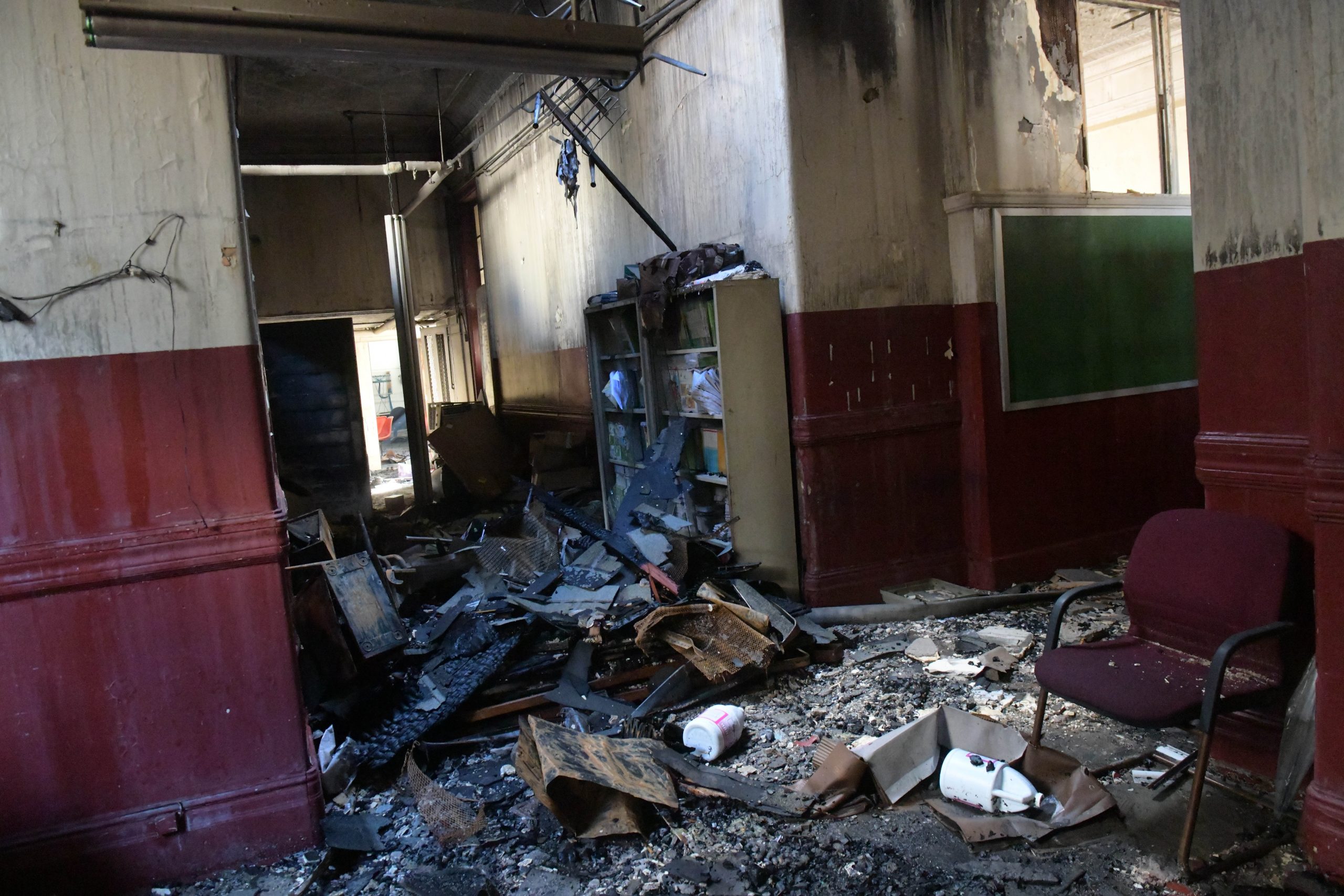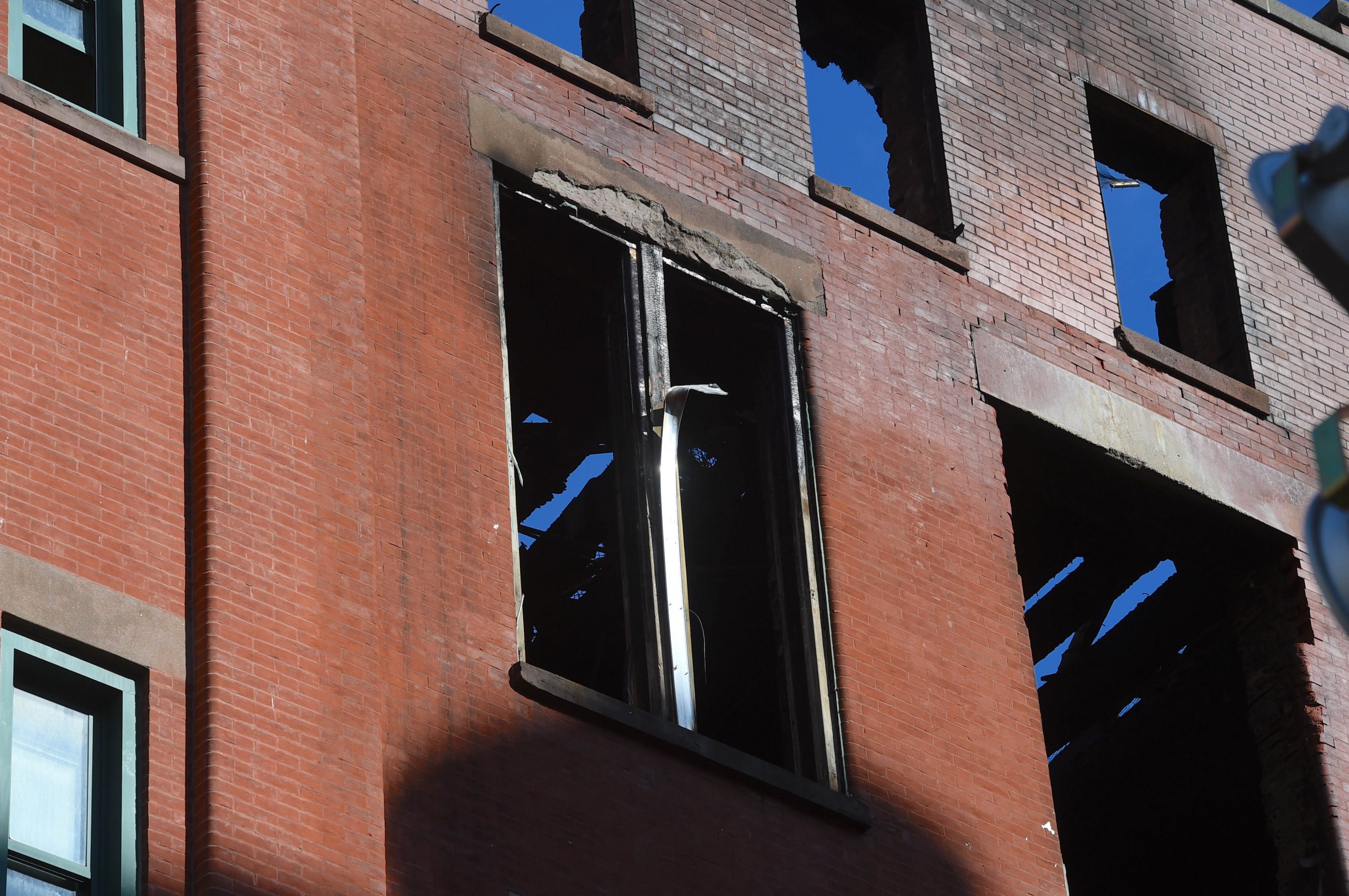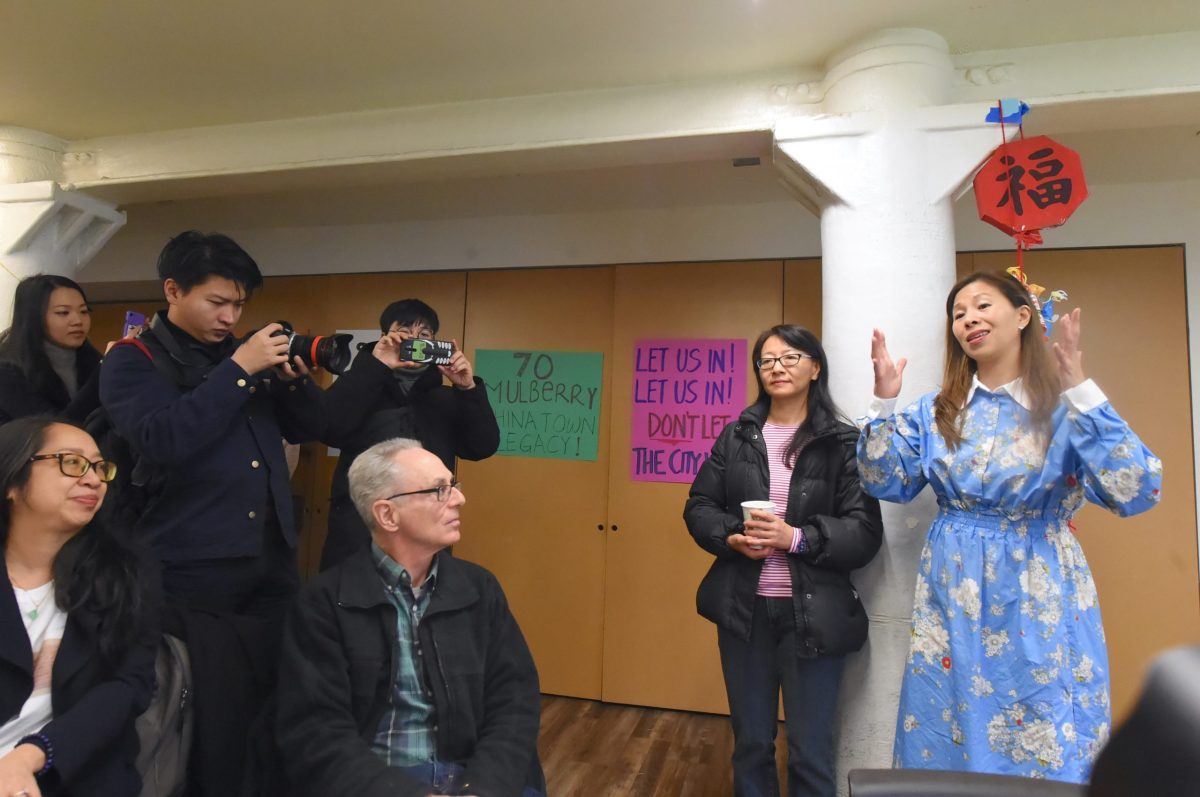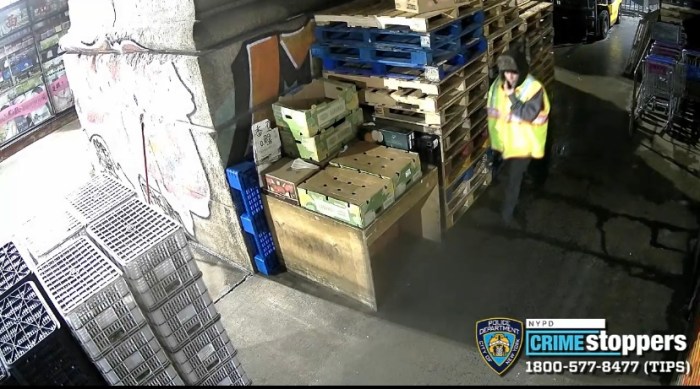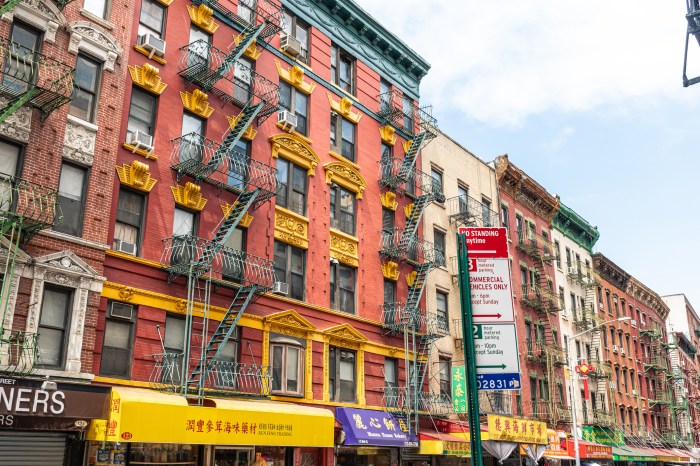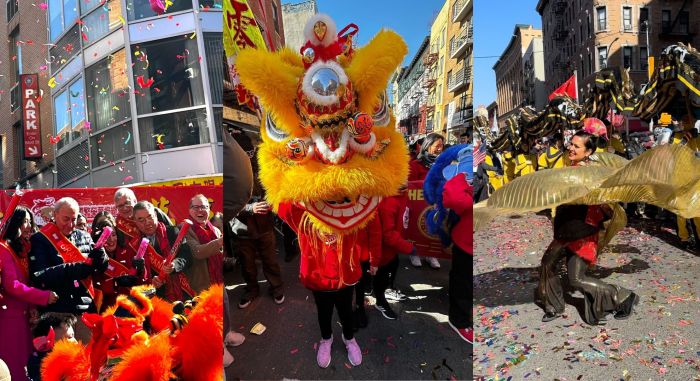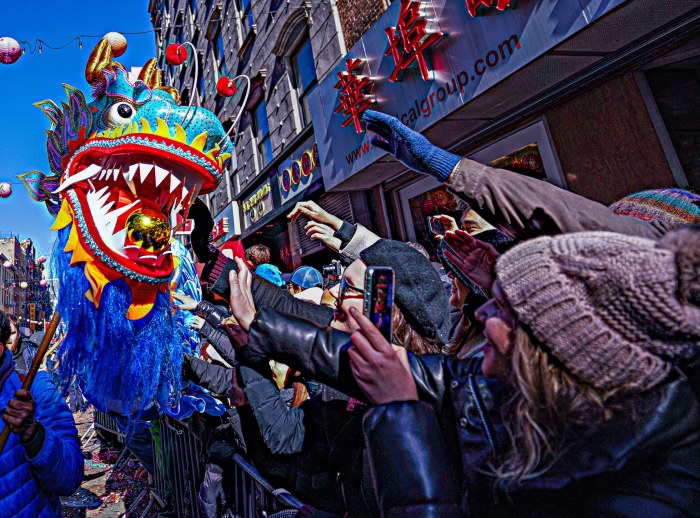The Chinatown community was ready to protest the lack of movement by the city to allow them to retrieve historical archives that belong to the Museum of Chinese in America when at the final hour, they were given a green light to prepare to rescue those irreplaceable documents.
A month earlier, a 5-alarm fire tore through 70 Mulberry Street, a building controlled by the city’s Department of Citywide Services. The building was being used by a myriad of Chinese organizations when the fire broke out – but most important to the community was the 85,000 artifacts of Chinese-American history stored on the second floor of the four story building.
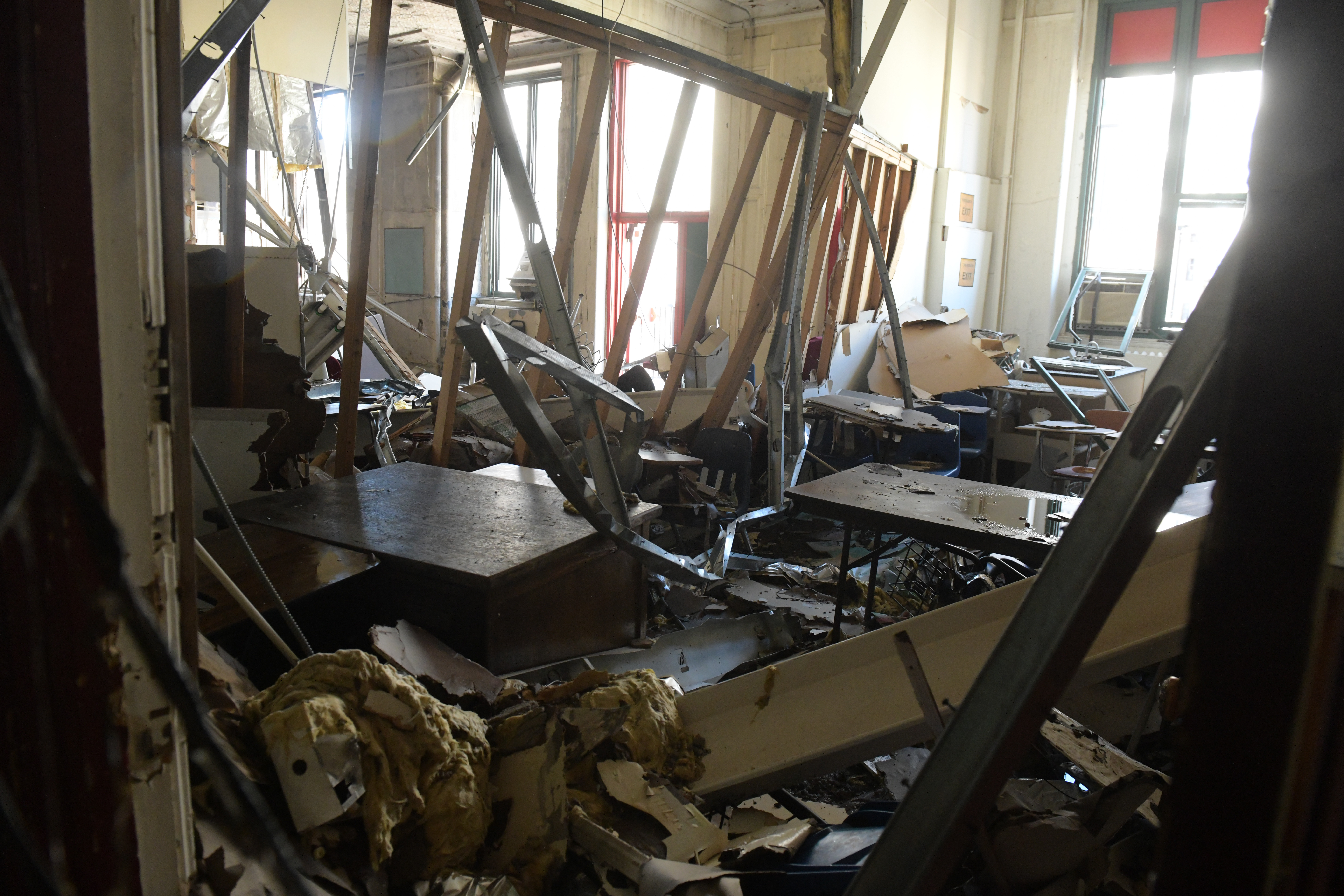
While the artifacts were not burned in the fire that consumed the third and fourth floors, the paper and photo documents were soaked by the initial water from fire hoses and over the past month, from the rain that has saturated the city – and officials feared the documents would be hit by mold as the weather warmed.
About 20 percent of the archives have been retrieved by the museum, located at 320 Centre Street, but most of the rest sits in boxes, some of which remain in puddles of water on the floor. Museum officials have been pleading with the city to allow them to go into the building and retrieve the rest to no avail and were prepared to hold a mass demonstration outside the Mulberry Street building. But the city caved in last night, saying museum rescuers would be allowed in the building in about a week.
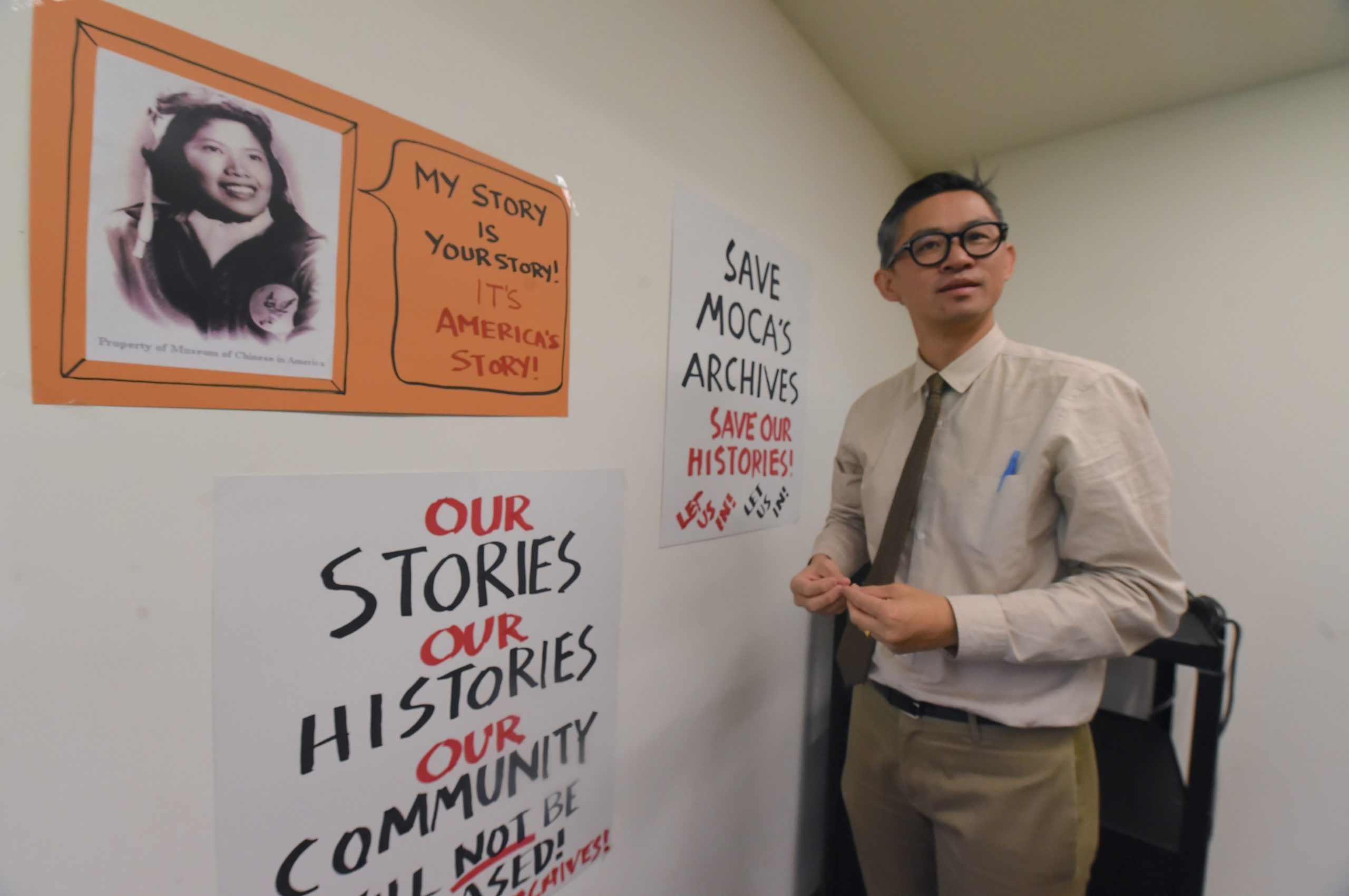
Nancy Yao Maasbach, president of the museum, happily taped posters that they had planned to hold in front of the building to protest against the city’s slow efforts in allowing them to re-enter the building.
“When the 5-alarm fire broke out at 70 Mulberry, MOCA anticipated the loss of its 85,000-item collections and archives collected over 40 years and our neighbors’ precious belongings,” Maasbach said. “With the city’s prioritization, the community’s perseverance, and the public’s acknowledgment of our stories, our heritage, and our history, MOCA will always be indebted to the efforts made at this time by all. The road to recovery, repair, and rebuild is long but we now have visibility on that road and we are committed to walking it together.”
She said much of the wet materials will have to be freeze dried, a process of removing water safely from paper documents. Her staff has set up space in her building, loaned to them by her building owner for the next six weeks. She was thankful for the 100 or more volunteers who have stepped up to help including archivists and specialists in recovery.
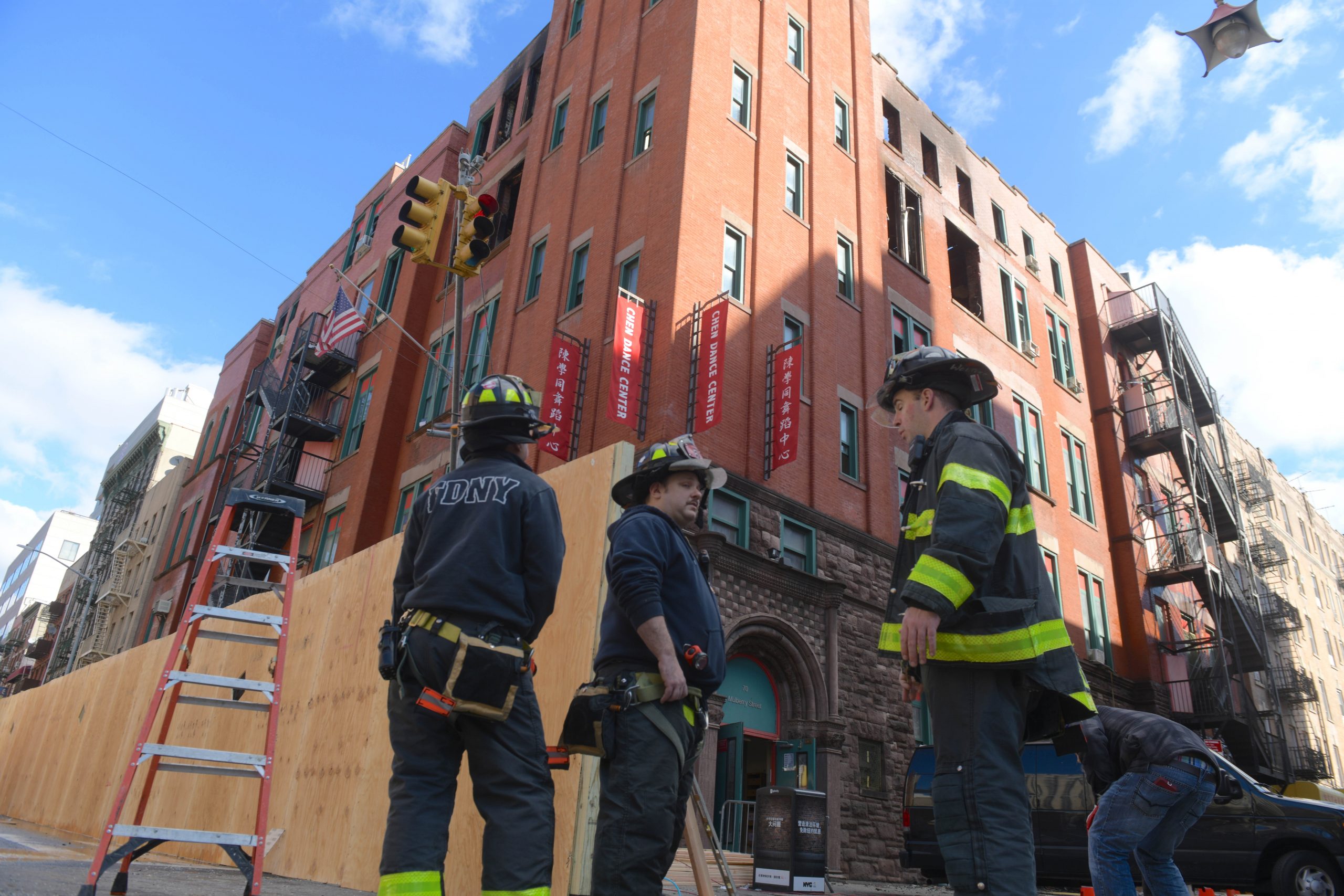
Maasbach said she is cautiously optimistic that they will enter the building next Saturday. However, one museum official privately said, “we really need to get in there and I’m optimistic, but when I see it, I’ll believe it.”
DCAS officials issued a statement saying that the archives and other parts of the building are being “made safe” during a “deconstruction.”
“Today marks the beginning of a rebuilding process for this cherished part of the Chinatown community,” said Lisette Camilo, Commissioner of DCAS in a statement. “We are pleased that we will now be able to access the priceless museum artifacts and tenant belongings that have previously been inaccessible due to unsafe conditions inside the building.”
Officials say following investigations by fire marshals, the city began preparations for a potential deconstruction in order to accelerate the timeline for accessing items trapped in the building. A contractor has been on-site for weeks, DCAS said, “preparing for a safe and orderly deconstruction. The full, first phase of deconstruction is expected to take four months.”
The city has been working on a timeline that would eventually lead to the reconstruction of the building for community use. DCAS also announced a number of other measures meant to protect the public including:
- Since the fire, the NYC Department of Environmental Protection has conducted air monitoring for the presence of asbestos fibers and all samples have tested negative. The air monitoring will continue during the work to demolish the building.
- Traffic on Mulberry Street has been confined to one lane and that is expected to continue.
- Bayard Street was closed to traffic following the fire and is expected to remain closed.
- The city has provided weekly communications to all building tenants and will maintain an open dialogue with all parties impacted by the blaze.
- The city expects that the building will be rebuilt and continue its role as a vital asset for the Chinatown community.
Ava Chin was one of those prepared to protest outside the Mulberry Street wreckage.
“My family went to school there, and I remember feeling the history as I walked up that impressive staircase,” Chin recalled. “So many generations used the building – my father gave one of the first oral histories and he was a speaker for a class reunion in the 80’s. My grandfather’s exclusion documents are in that building and I touched it with gloves – this was such a tangible part of history.”
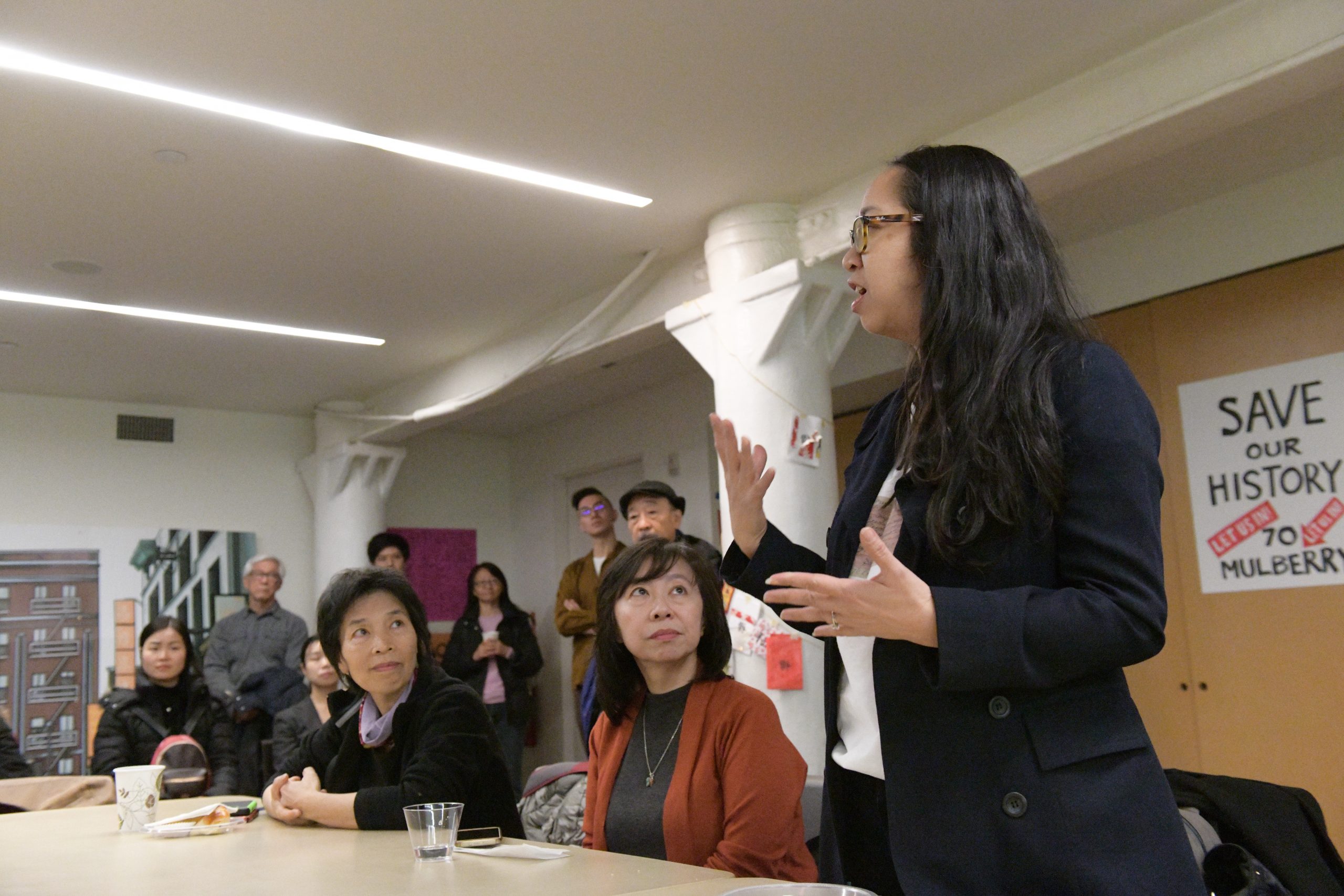
Affected building tenants other than MOCA were Chinatown Manpower Project, Chinese-American Planning Council’s Chinatown Senior Center, HT Chen Dance Center, and United East Athletic Association. In the immediate aftermath of the fire, the City assisted each organization with finding temporary workspace and with the recovery of some of the archives before safety officials deemed it unsafe.
June Jee if the United East Atheletics Association, said the building should be a “landmark.”
“There is so much history – I remember the days when the building was run by the Chinese Benevolent Association. Such a rich history that we really need to make sure we rebuild so it meets the community needs,” Jee said.
The museum has a GoFundMe page to help recover and repair a collection that took 40 years to compile. The museum intends to digitize more of the collection to preserve for years to come.
